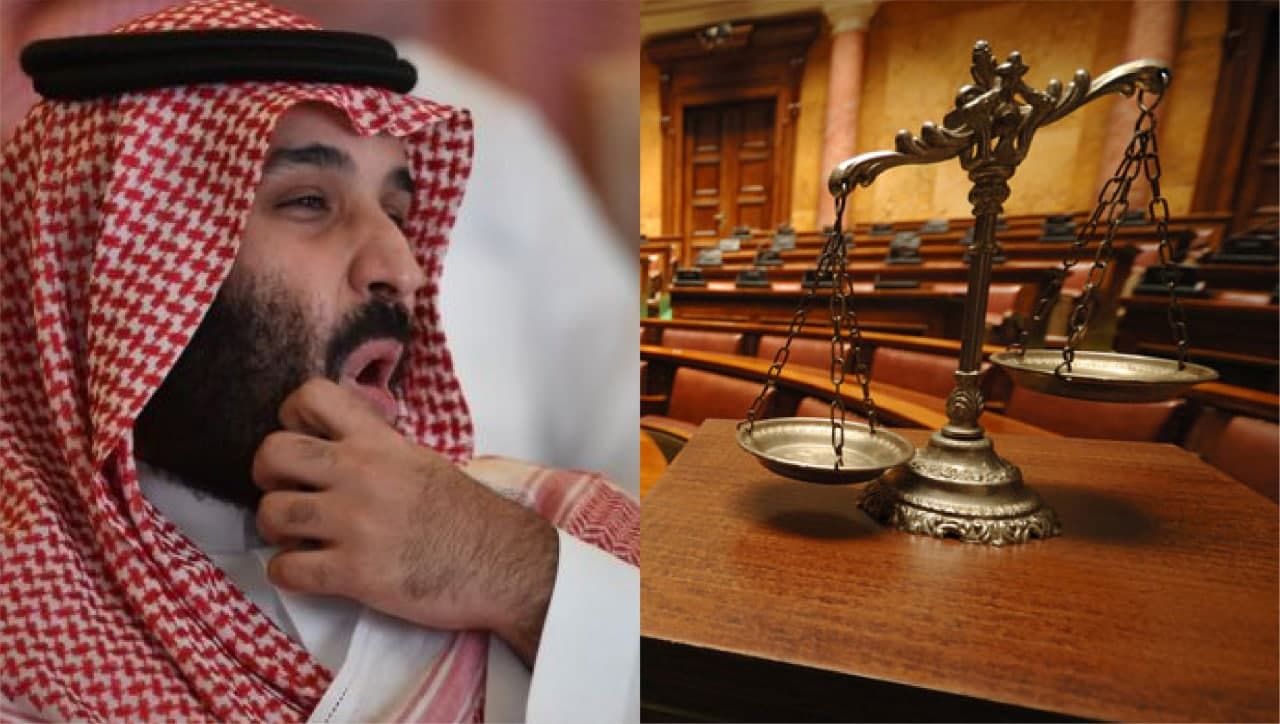
After years of calls by lawyers and human rights advocates for legislative reform—which have been met with repression, treachery, defamation, official intransigence, and abuses against the petitioners—Saudi Crown Prince Mohammed bin Salman has acknowledged the shortcomings of the current judicial system and the urgent need for radical reform.
On 8 February 2021, Bin Salman announced legislation he said will contribute to the development of the legislative environment and the stability of legal authority, so as to curtail subjectivity in issuing judgments and grant predictability in the system. The legislation consists of drafts of the Personal Status Law, the Civil Transactions Law, the Penal Code for Discretionary Sentences, and the Law of Evidence.
Bin Salman, who wields sole control over all aspects of government and state authorities, admitted that “[t]he absence of applicable legislations has led to discrepancies in decisions and a lack of clarity in the principles governing facts and practices. That resulted in prolonged litigation not based on legal texts. In addition, the absence of a clear legal framework for private and business sectors has led to ambiguity with respect to obligations.” Bin Salman added that these laws are being drafted with consideration for Saudi Arabia’s commitments under the international conventions and treaties to which it belongs, at a time when the official discourse consistently reiterates Saudi Arabia’s commitments to those documents.
The idea of legislative changes being discussed by the Crown Prince has been the most prominent and important demand of many reformers and jurists for several years, for which they have paid and are still paying a heavy price, such as execution, detention, and deportation. Consequently, the seriousness of the current adoption of these demands can be measured by the immediate release of detainees, an end to abuses against petitioners, and an apology and compensation for them.
Likewise, Bin Salman’s announcement confirms that the fierce repression and previous rulings had an unlawful basis and are therefore invalid. This necessitates effective and speedy measures to stop injustices based on falsehoods.
Bin Salman’s statements were followed by an extensive public relations campaign in official media, similar to the promotional campaigns for previous promises. This raises fears of the continued fraud, deception, and misapplication that have accompanied many similar past statements, whether those made during the reign of King Salman and his son or their predecessors. In similar situations, the implementation of promises lacked credibility, including generalizations and exceptions that undermined the basic goal of the law. For example, the Law on Juveniles prohibits the execution of minors, but it contains loopholes that allow just that. Likewise, there were exceptions in and disregard for the application of the law that allowed the government to put to death several minors in 2019 and 2016. This characterizes the current situation as well.
The royal order leaked in April 2020 regards abolishing the death sentence against minors.
ESOHR expresses its concern over the drafting of any law in Saudi Arabia. After reviewing the laws in force—such as the law to counter the crimes of terrorism and its financing, the cybercrime law, and so on—it appears that poor and undisciplined formulation clearly pave the way for government exploitation and enable bad intentions. For example, the terrorism law criminalizes acts that are essentially lawful and considers criticism of the king or the crown prince a terrorist act. The codification of penalties must include stopping the government’s manipulation and the criminalization of acts that are originally permissible. Furthermore, the penalties must be compatible with the accused crimes or actions without exaggeration.
ESOHR emphasizes that the Crown Prince’s mention of “discrepancies in decisions” must not include ta’zir [discretionary] death sentences, whatever the crime or the act. There must be explicit language in the text that ta’zir killing is not included among any proposed or prescribed penalties in these laws.
ESOHR also affirms that it is of utmost importance that these and any other laws be drafted from independent and professional jurists and presented publicly, so that all interested parties may comment on these laws without fear of reprisal or repression. This can achieve effective popular oversight and keep government from unilaterally issuing laws. Despite the absence of an elected, popular parliament in Saudi Arabia, and the difficulty of formulating public opinion, the importance of popular oversight must not be neglected. For example, in commercial laws, relevant authorities send draft laws to lawyers and chambers of commerce for their comments; the same process should be applied to criminal laws.
ESOHR notes that credible, true, and serious political administrations insist on complete judicial and prosecutorial independence, especially investigative, prosecutorial, and judicial bodies. In addition, any ties of these bodies with the king should be severed in order for there to be completely independent bodies not beholden to the king in any aspect, including oversight and administration. There must also exist the possibility of investigating and holding accountable the highest authorities, including the king and his son, who are primarily responsible for many abuses and crimes, past and present, such as torture, arbitrary executions, and the war in Yemen.
ESOHR stresses that any reforms must be based on the principle of separation of powers, which is the basis of any development in the legal structure, to ensure that no one authority, including the king and his crown prince, is in total control. Any promises of reform are, in essence, condemnation of the Saudi government’s systematic practices against reformers and human rights advocates over the past years.FacebookTwitterEmailنشر
